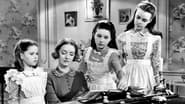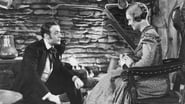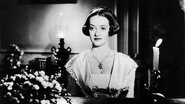Konterr
Brilliant and touching
AutCuddly
Great movie! If you want to be entertained and have a few good laughs, see this movie. The music is also very good,
Bob
This is one of the best movies I’ve seen in a very long time. You have to go and see this on the big screen.
Scarlet
The film never slows down or bores, plunging from one harrowing sequence to the next.
SimonJack
I agree with those who think that this may be the best performance by Bette Davis in her long career. "All This, and Heaven Too" is based on a novel about a real event. Many truths about that event may never be known – more on that later. But the historical event aside, one can judge this film as the story is presented here. And in that regard, Davis is superb. She is a devoted governess who loves children and teaching. She plays a restrained character who tolerates abuse and bad behavior of the duchess. Davis was known for playing dramatic roles so well – to make her characters so real. Her role in this film as Henriette Deluzy-Desportes almost seems out of character. Yet, it's her patience, composure, and innocence that comes across so convincingly. All the time she seems to be acquiring an affection for the duke – empathy, respect, and possibly love. We see that only by the looks in her eyes.Charles Boyer plays the male lead, the Duc de Praslin. Barbara O'Neill gives an exceptional performance as the Duchesse de Praslin, for which she received an Academy Award nomination. Jeffrey Lynn plays Henry Martyn Field. Child star Virginia Weidler is the oldest of the children, Louise. Other supporting roles are fine.Davis didn't receive an Academy Award nomination for her role in this film, but she did for "The Letter." Perhaps her fellow movie makers couldn't see Davis in such a subdued role. Yet it may take more talent to pull that off than any role in which she could break into rage. But, 1940 was also a year of much competition. Three of the 10 films nominated for best picture are on most lists of top films of all time — "The Great Dictator," "Rebecca," and "The Grapes of Wrath." Among the best actresses nominated were Joan Fontaine, Katherine Hepburn, Martha Scott, and Ginger Rogers, who won the best actress Oscar for her role in "Kitty Foyle." "All This, and Heaven Too" was based on a 1938 novel by American writer Rachel Field. She was a grandniece of Henriette Desportes. Henriette immigrated to the U.S. three months after the Aug. 17, 1847 murder of the Duchess de Praslin. She became principal of the Female Art School at the Cooper Union. She met and married the Rev. Henry M. Field in 1851 – after telling him of her past. She was a respected member of New York society when she died in 1874.The Paris scandal occurred six years after Henriette became governess of the de Praslin children. The duchess, Fanny Sebastiani, was from a wealthy family and became titled when she married the duke. The Duke de Chisel-Praslin (Charles Laure Hugues Theobald) had the title, but little wealth. The couple had nine children – not five, as in the movie. Theobald and Fanny became estranged over time. By the movie account, that began well before Henriette arrived. The children were very attached to the governess. The duchess resented that and argued with the duke. She accused him of having an affair with the governess. Through her father, the duchess forced the dismissal of Henriette after six years.It was some time later that the duchess was brutally murdered in her room. There was little doubt that the duke had killed her. She had 40 wounds on her body, and blood was everywhere. The Duke was covered with bruises, scratches and bite marks. But, before he could be brought to trial, he took arsenic and died a week later. Henriette was cleared of any suspicion and released from jail after being held for three months.Rachel Field's novel portrays her great aunt as the picture of innocence, which the movie conveys. Yet, the movie differs from facts in places, including the number of children. Popular belief among the French of the time was that the governess and Duke were having an affair. The truth may never be known to the satisfaction of all, but there is sufficient detail to vindicate Henriette of complicity in the murder and of an affair with the Duke.The police found volumes of letters the duchess had written to the Duke in her room. These accused him of an affair, and of the governess alienating the affection of her children. How did she come to have these letters if she had sent or given them to the Duke? How could a governess steal the affections of nine children away from a mother who loved them? It seems strange that nothing more was heard of the children. They went to live with their maternal grandfather. No doubt he would want to protect his daughter's (the duchess) reputation. But the children were never questioned by authorities, and none apparently ever wrote about this tragic matter in their lives.Why would a young woman take up a position as governess to nine children, and in a household in which there was animosity or strife between the spouses? Surely not with any inclination to enter into an affair with the husband. How could the duke and governess have an affair in a household with nine children and many servants and not be seen by those people? The couple had nine children, so clearly at some time they must have had an amorous relationship.All of the truth about this episode may never be known. But, it does seem that the duchess and duke both may have been mentally unstable – possibly crazy. He seems to have gone mad by his bizarre, brutal murder of his wife. But in the end, justice may indeed have been served with Henriette's new life in America. The sad chapter that the film never addresses, is the de Praslin children and what happened to them after this tragic affair in their lives.
treeline1
Bette Davis stars as Henriette, a governess who comes to work in the Paris home of the Duc de Praslin (Charles Boyer), in 1847. The Duc's jealous wife has always made his life difficult and the presence of the pretty, young governess brings their marriage to the boiling point. The Duc's children soon adore Henriette and he grows close to her, too, but does he feel gratitude for a job well done or is he falling in love with her? This romance/murder was based on a true story which was instrumental in bringing about the French Revolution of 1848. The movie is generally entertaining but falls short in several areas. First, the cast all overact so much that it quickly becomes soap-opera/melodrama. The costumes and interior sets are elegant, but the exteriors are cheap fakes. The movie is 30 minutes too long and consists mostly of exaggerated, grand speeches that aren't at all realistic. Davis sounds like Davis, which is to say, not French in the least. None of the others (except Boyer, of course) attempt a French accent, either, and the youngest child sounds Southern when he calls Davis, "Mahdum-mo-zayull." Homespun character actor Henry Davenport is also miscast as a Frenchman. Handsome Boyer gets a lot of close-ups but one can't tell if he's trying to be suave and loving or suave and sinister.Typical of the women's movies of the day, there are lots of tears and swelling violins and noble self-sacrificing, but it's just an okay movie for me.
madeline-167-157358
I have read the book and seen this movie many times. Potentially, Bette Davis was an inspired choice for the mademoiselle. Much is being made that Bette is playing against type, a "quiet gentle" character, but she's gone there before. I love this movie cause it gives me lots of Charles Boyer who practically shimmers in his romantic longing.Boyer being such a natural on screen only brings out the mannered and almost lazy approach of B. Davis. I've seen her speak naturally before without the clipping she developed and the hand which appears glued to her torso and folded in the most unappealing prissy way. Why oh why couldn't the director or Davis herself direct her properly for this role. The sour facial expressions (like she just drank a gallon of grapefruit juice) are annoying as heck.Despite these issues the potential was there. When she lets go of her acting ticks her luminous eyes and common sense manner work well as the intelligent governess. As it is, I overlook much of her and concentrate on the brilliant Charles Boyer and wonderful Barbara O'Neil who is right on target as the hysterical wife. In the book, Fanny De Praslin is even worse.
simplesimon419
This was a slow paced movie but well acted and easy to watch. I have never watched an entire movie with Bette Davis and I thought she played this character with such subtlety. One interesting aspect of this film was the interplay of the King of France and the peerage and how that made an impact on the arrest of the Governess as well as this scandal which eventually led to the King being dethroned. It was also interesting that she requested in the beginning that she be called a name DeBuzy which was different than her given name because of her grandfather. She also mentioned that her grandfather never forgave her for being born. This gave a little mystery to her character who as she said her self always took care of herself. I loved the voice of the Duke and thought Charles Boyer did a wonderful job and there was such chemistry between him and Bette Davis. The slow pace paid off in the last twenty minutes of the film when the countess was murdered. The last close up of the countess was great and that they did not show the murder. I'm still not quite sure was exactly happened-it looked as though he was going to choke her, but later it sounded as if she was stabbed or shot. I liked the unknown there as well as I was sure the duke killed her but not sure why he did not confess or why he took poison-maybe he was trying to protect the king. There was a lot to be inferred there. Maybe because it was based on a true story?






